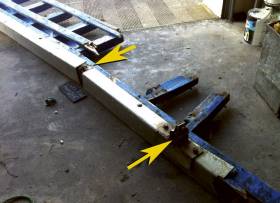Displaying items by tag: Cara Rose
#MCIB - Small fishing craft used for non-commercial potting must comply with the code of practice for recreational craft, investigators have warned in their report on the death of a fisherman in an incident off the Mayo coast last year.
Daniel Doherty went missing after his fishing boat Cara Rose sustained significant structural damage while hauling pots, and beached at Benwee Head north-east of Belmullet on 11 September 2015.
The 23-year-old’s body was recovered two weeks later some eight nautical miles off Downpatrick Head.
The report into the incident by the Marine Casualty Investigation Board (MCIB) found that the vessel suffered structural failure caused by the improper fitting of a hydraulic pot hauler by Doherty, who purchased the boat in 2014 but did not obtain any safety certification.
It was also found that Doherty, who may not have been wearing a personal flotation device (PFD), regularly sailed from Rinroe Pier to bait and haul pots in Broadhaven Bay with only occasional mobile phone contact with a relative on land — contact that would have been unavailable while operating in the shadow area where the boat was found.
While there was a VHF radio operational on the vessel, it did not have the required licence or call sign.
The MCIB report concluded that had Doherty been wearing a PFD and been carrying a personal locator beacon, it’s likely he would have been visible to search teams who began their operation within minutes of the alarm being raised.
Also highlighted by investigators was the lack of clarity over non-commercial fishing allowed in the Recreational Code of Practice, which was last revised in 2008 and does not yet include new and relevant regulations introduced this year by statutory instrument.
The full MCIB report into the MV Cara Rose is available HERE.
























































